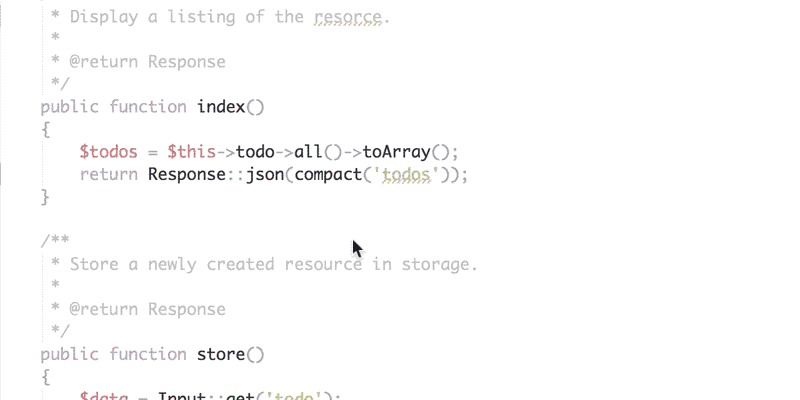
ActiveState is releasing version 9.3 of its integrated development environment with some small features it said makes a big impact. Komodo is the company’s multi-language IDE for developers.
The biggest feature, according to Nathan Rijksen, lead Komodo developer at ActiveState, is the addition of a documentation browser, which allows developers to quickly reference the documentation for the languages they are using. This feature makes a big impact on a developer’s workflow because they no longer have to switch to their browser and search for documentation, find the references, and switch back to the IDE, he said.
“We wanted to reduce the amount of time a developer spends switching between different applications,” he said. “You should just be able to stay in your IDE and do your work without having to rely on external resources all the time.”
Another key feature is the ability to run code in-line, which allows developers to quickly test bits of code by hitting a shortcut to run the file or selection, and to quickly review its results. “Every time you have to debug something, it takes you out of the zone,” said Rijksen. “You are working on your code, you are trying to get stuff done, and then you have to start debugging and you are basically drawn out of your workflow. The idea with this feature is that you just hit a shortcut and Komodo runs your code once, shows you the output, and it is done.”
Other features in this release include:
- Quick Bookmarks: Ctrl + Shift + number creates a quick bookmark; Ctrl + number goes to that bookmark.
- CSS CodeIntel: Auto-completion and code browsing were added for CSS, LESS and SCSS files. It also works when editing HTML and using CSS classes or IDs in the developer’s markup.
- In-line Syntax Checking: A small notification popup appears at the bottom-right corner of the editor window when syntax errors or warnings occur.
- Package Manager 2.0: Fully manage all customizable aspects of Komodo, including add-ons, skins, color schemes, and languages.
- Multiple Find Result Tabs: Every search now opens in its own result tab; it now also show an input field, allowing users to search again with the same input but different search pattern.
- Enhanced Multi-Caret Mode: Multiple Caret Mode is more flexible and allows for more complex actions than before.
- Embedded Find/Replace: Find and Replace has been significantly overhauled and is now part of the editor.
- Quick Start on Tabs: When opening a tab, a new view lets users pick what to do with it—i.e. new files, open files, new file from template, recent file, etc.
While individually the new features are small, together they make a big impact by reducing the time it takes developers to do stuff. such as looking up language references, making the process more automated, and making developers’ lives easier, according to Rijksen.






